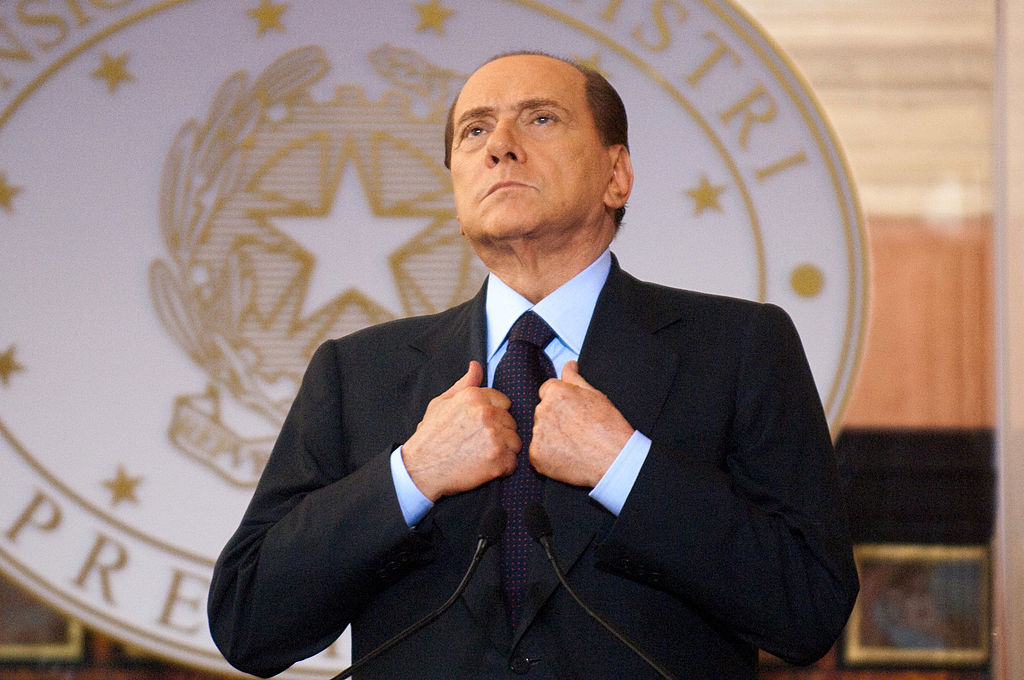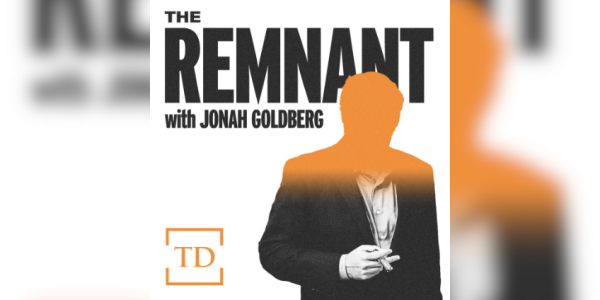Silvio Berlusconi, a fixture on the Italian political scene for decades who died this week at age 86, wasn’t the predecessor of Donald Trump. He was the successor to Bill Clinton and the predecessor to Harvey Weinstein.
There was a time, and it was not ancient history, when the most gauche thing you could do in American political life was to take seriously Bill Clinton’s sexual misconduct. And that didn’t start with the Monica Lewinsky matter and Clinton’s impeachment for perjury and other misdeeds. It went all the way back to the Democratic primary and the 1992 election. We were told that Americans—Americans in general but conservatives in particular—were hostage to primitive, old-fashioned, Protestant-fundamentalist assumptions about sexual propriety. Great men, Clinton’s defenders said, have great appetites—look at John F. Kennedy!—and everybody in the world understands this except Americans.
As Anne Swardson wrote from France in the Washington Post in 1998: “It is widely agreed here that this sort of contretemps, whether justified or not, could not happen in France. The public not only tolerates the oft-stated, but unproven, fact that its leaders stray from the strictures of marriage, it does not care, and neither do the media.” A Europe correspondent reported a conversation with one of his overseas colleagues: “I asked how he would he feel if Wim Kok, the Dutch prime minister, confessed to having oral sex with a 21-year-old intern. ‘At his age? We’d all be proud of him.’”
The European attitude, we were lectured at the time, was “sophisticated.” To which I say: Bunga bunga.
We are all social conservatives now.
Americans think of world affairs almost exclusively as they relate to us and as they relate to us right now. So many are reading essays this week about how Berlusconi, a billionaire populist who based his fortune and a political career on finding new ways to squeeze the lemon of cultural resentment, was the type and the template of Donald Trump. That isn’t really fair to Berlusconi—yes, he was corrupt and venal, but, unlike Trump, he was pretty good at it: better at business than Trump, to be sure, with a net worth several times a high estimate of Trump’s, but also better at debauchery. Trump may have cheated on all of his wives and chased the occasional over-the-hill adult-film actress around a hotel room, but Berlusconi, true to his political forebears, thought of Caligula and said, “Hold my Peroni.”
Actually, I don’t know if Berlusconi liked beer at all, but he did once share a bottle of ’75 Jeres de la Frontera—to be clear, that’s 1775—with Vladimir Putin on a tour of Russian-occupied Crimea. It wasn’t Berlusconi’s wine, of course—he just saw the bottle, which had been brought to Crimea by Count Mikhail Vorontsov during the reign of Catherine the Great, and opened it. That was Berlusconi’s way, whether the object of his appetite was a 240-year-old bottle of sherry or a 17-year-old prostitute. Putin was the same way, except he didn’t grab a bottle of wine from a cellar in Crimea but Crimea itself.
But, you know: great men, great appetites.
Bill Clinton wasn’t just a lech, and he wasn’t just another Democratic politician. He was responsible for reviving his party after its long period of stagnation during the Reagan-Bush years, and one of the things he did to revive the Democrats was to join progressive (mildly and moderately progressive, but progressive nonetheless) political sensibilities with corporate money and Hollywood glamor. Clinton knew that what the party of George McGovern and Walter Mondale needed was a little dose of sex appeal, and it wasn’t going to come from Warren Christopher. There is a story that Barbra Streisand, who imagined herself a kind of informal political adviser to the Clinton administration, once got bent out of shape when she learned that Clinton had given a famous 1990s sex symbol the place of honor at a White House event: “Sharon Stone?” she spat. “What does she know about policy?” As with the hypocrisy of fallen Moral Majority-type leaders, progressive piety adds savor to the scandal. Surely it is the case that powerful Hollywood Democrats such as Harvey Weinstein believed that they could engage in the kinds of shenanigans they did at least in part based on the example of Bill Clinton and his “sophisticated” defenders—being old men, Weinstein et al. perhaps did not appreciate how the culture had moved on. In the 1990s, indulging the likes of Bill Clinton was useful to progressives who had feared that they would never again hold real political power after the Reagan years; by the time of the Weinstein scandal, those old men were simply in the way of people who now had power of their own, wanted more of it, and, understandably, wanted it independent of such men.
Berlusconi’s home was on the political right and Clinton’s was on the left, but, like James Carville and Mary Matalin, what binds them together in spite of their notional political differences is that they were in the same business. Berlusconi served his first term as prime minister when Clinton was president—Berlusconi was a decade older, but the two were, politically, men of the same generation. Neither man could launch a political career today without leaving behind the libertine attitudes of the 1990s. Even 1980s dinosaur Donald Trump feels the need to pretend, from time to time, to be a different sort of man than he is and to keep a Mike Pence or a Ted Cruz around like an organ-grinder’s monkey to dance for the rubes in the pews.
The same people who defended Clinton in his day are tsk-tsking Berlusconi now. But that is the way of things—and perhaps it is the case that the modern attitude is better in at least some ways. More joy in heaven and all that.
Our attitudes about sexual behavior may have changed, but we haven’t given up the deeper and more fundamental attitude that made Berlusconi and Trump and Clinton and Weinstein the men they were—which is, of course, power worship. People worship power that is close to them because they hope to be able to use some of it for themselves—having connections in high places is the only real reason Hunter Biden isn’t working at a car wash and Hillary Rodham Clinton isn’t an obscure emeritus law professor, while being close to Weinstein was good for a lot of Hollywood careers right up until the nanosecond it wasn’t. But we also worship power from afar in the primitive belief that we can, through the transmuting voodoo of politics, manage it on our own behalf—that we can have power on loan by subordinating ourselves to the powerful and, in that way, mystically adjoining ourselves to that power. Sometimes, that’s a very simple thing: Berlusconi, like Trump, would point to his own personal wealth as evidence that he would be an effective leader on economic policy—vote for the rich guy, get rich—and, like Trump, he always failed to deliver. Berlusconi at times promised a Thatcherite liberal reform program for an Italian economy plagued by corporatism and complacency, but never really tried to get it done. (Trump’s presidency—and apply here all the caveats about presidents and economic performance—coincided with the worst GDP growth since Herbert Hoover, and his GDP numbers remain at the back of the pack even if one accounts for COVID.)
Italy would have been better if Berlusconi had been something more like the man he pretended to be: Esse quam videri. But if you get enough clowns in the same room, it’s going to be a circus.
Nobody today would laugh away Bill Clinton’s sexual behavior, and most probably wouldn’t laugh away Berlusconi’s—or even that of Wim Kok, if he were extant and so inclined. Bunga bunga just isn’t as funny—or as much fun—as it once may have seemed. But as the circus down in Miami demonstrates so persuasively, we have not stopped indulging the worst appetites of the powerful—we have only experimented with new ways to submit.








Please note that we at The Dispatch hold ourselves, our work, and our commenters to a higher standard than other places on the internet. We welcome comments that foster genuine debate or discussion—including comments critical of us or our work—but responses that include ad hominem attacks on fellow Dispatch members or are intended to stoke fear and anger may be moderated.
You are currently using a limited time guest pass and do not have access to commenting. Consider subscribing to join the conversation.
With your membership, you only have the ability to comment on The Morning Dispatch articles. Consider upgrading to join the conversation everywhere.